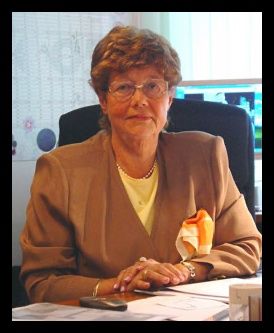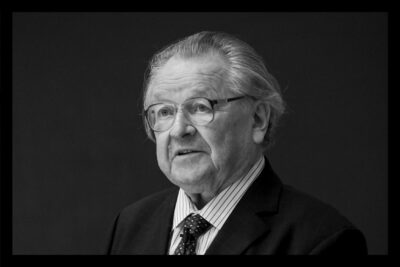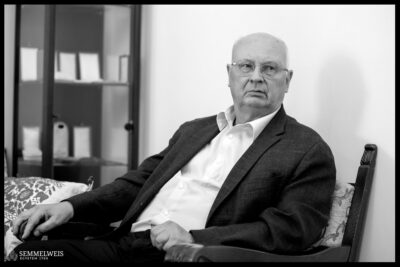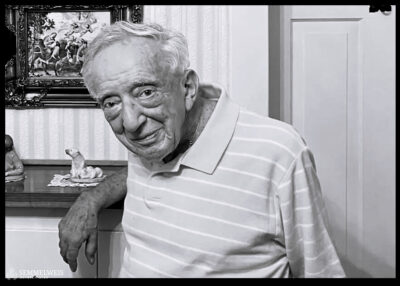“I existed when I was not alive, and I will be after I am dead.”
(Quote from the book ‘The Soul of Anna Kádár’ by Mihály Földi)
 With her death, Semmelweis University and the then 2nd Department of Pathology (now the Department of Pathology, Forensic and Insurance Medicine), which she led between 1993 and 2000, lost a great personality. Anna’s home-grown literacy, worldly vision, self-confidence and natural elegance predestined her for a career rich in success and recognition.
With her death, Semmelweis University and the then 2nd Department of Pathology (now the Department of Pathology, Forensic and Insurance Medicine), which she led between 1993 and 2000, lost a great personality. Anna’s home-grown literacy, worldly vision, self-confidence and natural elegance predestined her for a career rich in success and recognition.
He succeeded Professor Harry Jellinek as the head of the institute, continuing the tradition of open-minded leadership, supporting young people and building international relations. She helped everyone who turned to her. I guess it says a lot about the relationship between her and the staff of the institute at the time that we called her ‘mother’ when she came up in conversation in one context or another: we loved, respected and sometimes feared her. Every year, she hosted the institute staff at her house in Buda for a cosy barbecue in the garden, as a ‘team-building’ (a term that was not in vogue at the time).
She founded the English-language course at Semmelweis University in the 1980s: the initial two-year course had just ten American students in each year, yet within a few years the full course was established at three faculties (Faculty of Medicine, Faculty of Dentistry, Faculty of Pharmaceutical Sciences), with international courses of several hundred students each year. I believe she considered this perhaps the greatest success and achievement of her career. Until the age of seventy, she headed the Foreign Students’ Secretariat, managing the education of those studying in German and English. But she was not just the director of the secretariat in an administrative sense: she was also personally involved with the foreign students, and maintained contact with many of them, following their careers for years after they had graduated.
Her world-renowned and respected research achievements have been related to the electron microscopy of elastic fibres. The PhD program in Cell and Extracellular Matrix Research, which she founded in the university’s Doctoral College, has resulted in numerous publications and PhD degrees. She herself has mentored 13 students to attain PhD degrees. She was very proud of her students, many of whom went on to become successful specialists or researchers abroad, including Péter Gloviczki, Professor Emeritus at the Mayo Clinic.
She also played a major role in the community life of Hungarian pathologists and in the international promotion of Hungarian pathology: as President of the Hungarian Division of the International Academy of Pathology (IAP), on her initiative, the IAP organized the largest pathology world congress at that time, the very successful XXI IAP International Congress in Budapest in 1996, with thousands of foreign participants. The congress gave many Hungarian pathologists the opportunity to meet the world’s leading experts of the time and to establish research collaborations abroad that continue to this day. Following the congress, she was elected President of the International Academy of Pathology for the period 1998-2000. As a Hungarian pathologist, it was a great honor to chair a world professional organization, but Anna considered this only partly her personal success: she believed that by electing her as president, the world organization was recognizing not only her, but also primarily Hungarian pathology and Hungarian pathologists. In the history of Hungarian pathology, no one before or since had held such a high position in a professional world organization.
In addition to numerous university and state awards, she has received many national and international professional honors as well. An interview collection about her life and career has been published in the Semmelweis Publishing House’s ‘Titoknyitogató’ series. In this interview volume, she spoke frankly, wisely and with the unvarnished frankness that has always been characteristic of her.
She had a big family and many friends who played a very important role in her life. She was devastated by the death of her beloved husband, Dr. Gábor Krakovits, and was deeply saddened by the loss of more and more of her friends. In the last year of her life, her health deteriorated and she became inconsolable. During this period, only her beloved brother Miklós, who lovingly and devotedly remained by her side until the last moment, and her family, especially her grandchildren, could shake her out of her sadness at the loss of life.
It is our duty not only to preserve with dignity, but also to pass on to young people the spirit and approach that Anna Kádár left to us.
Dear Anna, rest in peace!
Dr. Janina Kulka, Department of Pathology, Forensic and Insurance Medicine
Translation: Viktória Kiss


